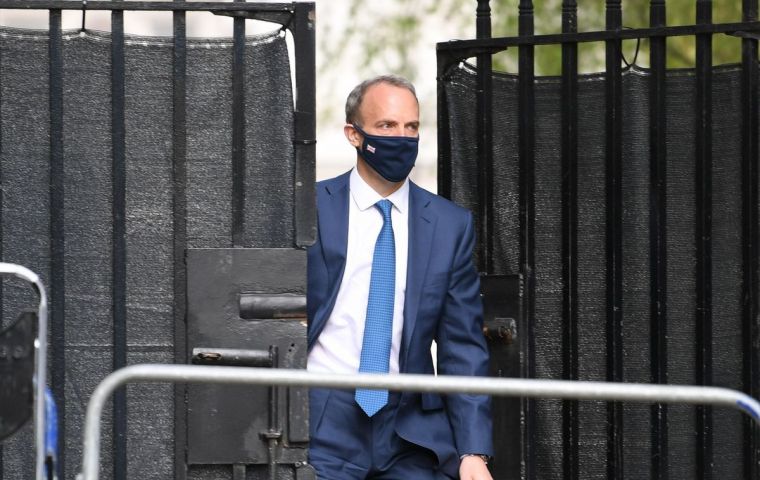MercoPress. South Atlantic News Agency
London has a new, logical post-Brexit foreign ambassador
 “The EU ambassador will have a status consistent with heads of missions of states,” Raab explained.
“The EU ambassador will have a status consistent with heads of missions of states,” Raab explained. The British government of Prime Minister Boris Johnson finally agreed to grant the representative of the European Union the diplomatic status held by all foreign ambassadors, which seemed natural after Brexit, but not for those who claimed the EU is not a nation-state.
The decision announced Wednesday puts an end to one of the natural post-Brexit controversies. The European Union's ambassador to the UK will have full diplomatic status, it was made clear.
“The EU ambassador will have a status consistent with heads of missions of states,” Foreign Secretary Dominic Raab and EU foreign policy chief Josep Borrell said in a joint statement.
In what was regarded as an “unfriendly” move, Britain had originally refused to grant the same diplomatic status and privileges to EU Ambassador Joao Vale de Almeida, to which the European Union responded by shutting the British ambassador in Brussels out of meetings.
The disagreement was resolved after a meeting between Britain's foreign minister Dominic Raab and Josep Borrell, the bloc’s top diplomat, on the sidelines of a G7 foreign ministers meeting in London.
“We are pleased to have reached an agreement together, based on goodwill and pragmatism,” Raab said in a statement on Wednesday.
“The EU Ambassador will have a status consistent with heads of missions of states, including agrément and presentation of the credentials to the Head of State.”
“The staff of the EU delegation will have the necessary privileges and immunity to function effectively,” they added.
Under the Vienna Convention governing diplomatic relations, envoys representing countries have certain privileges such as immunity from detention and, in some cases prosecution, as well as tax exemptions. Representatives of international organizations whose status is not covered by the convention tend to have limited and less clearly defined privileges.
The European Commission, the 27-member bloc’s executive body, said the EU’s 143 delegations around the world had all been granted a status equivalent to that of diplomatic missions of states.




Top Comments
Disclaimer & comment rulesCommenting for this story is now closed.
If you have a Facebook account, become a fan and comment on our Facebook Page!